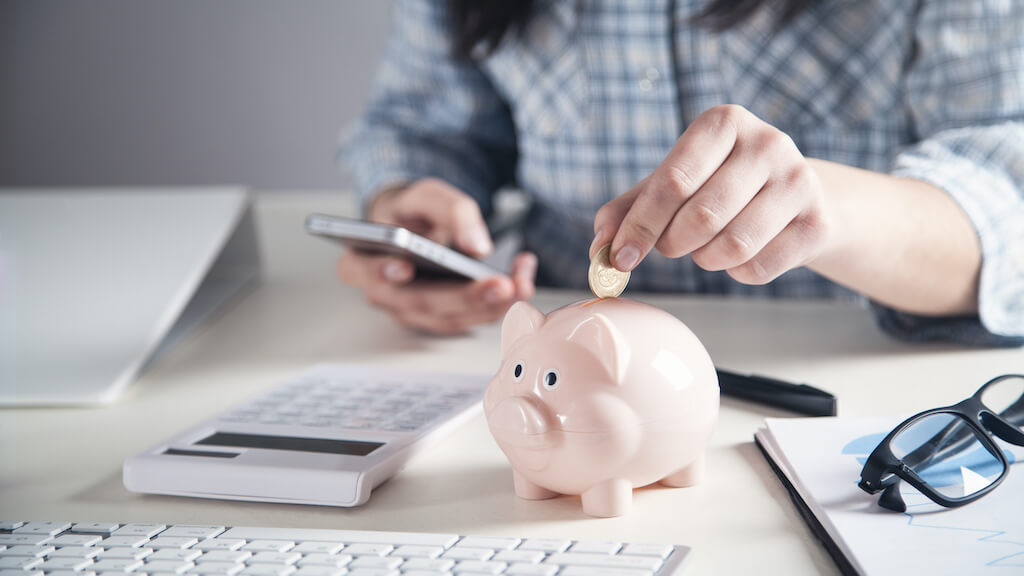The COVID-19 pandemic has hit many households hard so far, and with job losses, pay cuts and rising prices, it has become necessary to tighten the purse strings and save up for any unforeseen emergencies. As the trends in the near future are unclear, many people are being forced to revisit their saving habits.
Saving money, however, is not always easy. It takes a great deal of financial discipline to start and to remain consistent at saving up for rainy days. To make it easier for you, we have listed a few ideas and pointers on saving money in times like these.
You have plenty of different loans like the debt consolidation loan, car loan, wedding loan or personal loan.
Let’s take a look at 7 ways to save money during this crisis.

1. Resist the impulse to engage in retail therapy
With most of the whole shopping exercise now having shifted to digital and online platforms, you’ll likely be bombarded with ads about enticing products that you may not really need right now. Also, with most people having been cooped up at home for extended periods, the impulse to engage in some good old retail therapy may get stronger. But if saving money is your priority during this crisis, you’ll want to steer clear of these ads and resist the impulse to go shopping for non-essential products online.
2. Nurture your emergency fund
While actively cutting off unnecessary expenses is one way of saving money, what you also need is a more concrete strategy to actually add to your savings. Here’s where your emergency fund can help. With all the costs you’re cutting, you may have some added cash in hand. Transfer those funds to your emergency stash, so your savings for a rainy day can grow during this crisis. Also, when you park the money you’ve saved in your emergency fund, there’s less likelihood of you spending it away on an impulse.
3. Cancel unnecessary subscriptions
OTT platforms are cropping up all over the place. And prior to the lockdown, you, like most people, may have given into the urge to subscribe to a ton of them. If you’re regularly consuming content on all of them, that would be a different story. However, if there are platforms that you haven’t visited for ages, or others that you don’t view content from often, cutting back on those subscriptions would be a good idea. You could also cancel gym memberships and other subscriptions to physical spaces that may not be safe to get to for a while.
4. Track your electricity consumption
Power and electricity don’t come cheap. If you have a fixed price plan, there’s little you can do. But if you follow the non-standard plan, you pay less for electricity consumed during non-peak hours and more for what you consume during the peak hours. Tracking how you use your electricity across these peak and non-peak hours can help you cut down your power costs by a significant margin. Limiting power usage in peak hours can be of great help in saving money during this crisis.

5. Cook at home
Ordering in is undoubtedly convenient. You don’t need to spend time planning your meals or cooking them; they’re delivered warm and packaged at your door. But, if you regularly order your meals from restaurants nearby, or you indulge in takeaways, the costs can quickly add up. A better strategy would be to cook at home, particularly if you’re looking at saving money during this crisis.
Cooking at home, if done efficient, costs less than eating out. And as an added bonus, it’s healthier too, so you can even cut back on potential medical costs.
6. Make bulk purchases
It may not be easy to purchase fresh produce in bulk, since there’s the risk of your purchase spoiling. But if you have a good freezer at home, try and purchase your essentials in bulk, so you pay less for the items overall.
This strategy also works for non-perishables like soaps, shampoos, and other consumer durables that don’t typically expire soon. Purchasing smaller quantities can prove to be more expensive in the long run, particularly if you’re having them home-delivered, since the delivery costs themselves can quickly add up.
7. Take advantage of deals and offers
There’s an upside to all those ads you see online, though. You can easily keep an eye out for deals and offers on the products you actually need. You can also actively look for offers and discounts and essentials, so you can lower your overall costs. Taking advantage of deals and offers on necessary items is another excellent strategy for saving money. Saving coupons that you can make use of on your next purchase is also another good idea.
These ideas can help you save a lot more than usual during this crisis we are in. That said, in case you’re in sudden need of emergency funds, you may have to resort to borrowing from a lender or a bank. Here’s where Lendela can help you. On lendela.com, you can compare tailor-made offers from different lenders and choose the option that best meets your needs.


